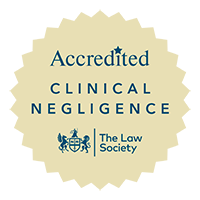Top ranked cerebral palsy claims lawyers
Anonymity orders in cerebral palsy claims - protecting your family's privacy
Compensation from a medical negligence cerebral palsy claim can be life-changing for the injured child, teenager or young adult and their family. Settlements in cerebral palsy compensation claims aim to provide funds to meet the injured child’s lifelong needs including for care, specialist equipment and therapy and housing. Cerebral palsy compensation claims involve very large sums of money. Media reporting that identifies the child or their family can result in unwelcome attention and interest.
Anonymity orders allow us to protect our clients’ privacy. For children and those with cognitive injury the compensation is also protected through a trust or deputyship.
What is an anonymity order?
Court hearings are open to the public which means they can be reported by the press. If a case goes to trial or a child’s settlement needs approval by the court, it is likely that personal and sensitive information about our client and their family will be discussed during the hearing. An application for an anonymity order can protect the identity of the child, their family and litigation friend in relation to any reporting of the court proceedings during and after the conclusion of their clinical negligence claim.
This means that across all court documents, the child’s and their family’s names and addresses will be replaced by unrelated initials, ensuring that their identity does not become public knowledge. The court order also prevents publication of any information which might lead to the identification of the child or their family. In cerebral palsy claims, anonymity orders do not disguise the identity of the NHS trust or doctor against whom the claim is made.
Why do I need an anonymity order in a cerebral palsy claim?
Parents and guardians of children or teenagers with cerebral palsy who are making a claim often worry about whether having large sums of compensation money will make their child vulnerable.
Common questions asked by families of children with cerebral palsy include:
- How can I protect my child’s personal and sensitive medical information?
- How can I avoid friends, neighbours and the general public becoming aware of the claim?
- How can I prevent unsolicited approaches for money?
- Will having so much money affect my relationships with my friends and family?
- How can I avoid harassment from the press or the general public?
- How can I prevent my name and address from being published?
An anonymity order helps protect the child’s and the family’s privacy by legally prohibiting publication of their names and addresses in any reporting of the claim.
How soon can I get an anonymity order in a cerebral palsy claim?
We can ask the court to make an anonymity order at any time after court proceedings have been issued. We discuss the benefits and restrictions of an anonymity order with our clients and their families to decide on what’s best for the injured child, teenager or young adult. The individual needs of the child, the family’s circumstances and any concerns about other people’s interest in the child or their compensation are common reasons for applying to the court for an anonymity order at an early stage of the case.
Anonymity orders usually become more significant for our clients when large sums of compensation are mentioned in court in the later stages of the claim. Once a settlement has been agreed for a child with cerebral palsy, we ask the judge who approves the final settlement to make an anonymity order at the same time, to ensure that the child and their family’s names and addresses are not mentioned in any legal reports, press reports, social media or other public reporting or commenting on the settlement.
Is it difficult to obtain an anonymity order in a cerebral palsy claim?
Applications for anonymity orders are routinely considered and granted by the court in cases involving vulnerable children and adults. The judge has the power to reject an application for an anonymity order in certain circumstances, but in our experience, the courts and also the NHS defence team, NHS Resolution, recognise that it is usually in the best interests of the injured child or vulnerable adult who is receiving a substantial sum of compensation to protect their privacy by prohibiting disclosure of their identity in any reporting of their claim
Can I share my story to help others if I have an anonymity order?
At Boyes Turner we take our clients’ privacy very seriously. We also recognise that our settled case reports and clients’ stories provide hope and encouragement and answer many questions for families in similar situations who are considering making a medical negligence compensation claim. We can publish helpful and informative case studies based on our clients’ experiences in cases where there is an anonymity order. We always safeguard our clients’ anonymity and privacy and only share stories which have our clients’ consent.
They have a great deal of knowledge and expertise, and client care seems to be their top priority.
Chambers Guide to the Legal Profession
Contact our expert Cerebral Palsy solicitors today for support with your claim




